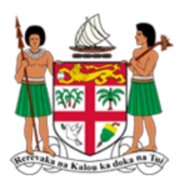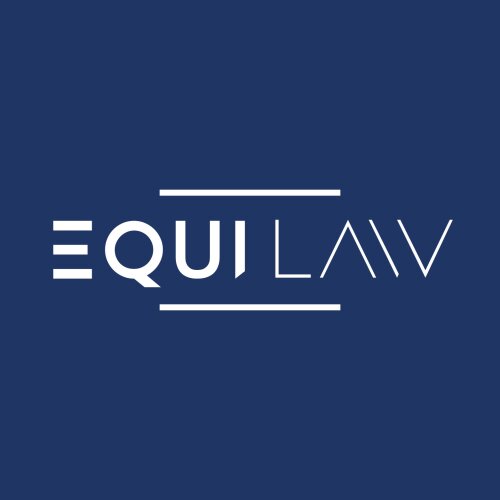Best Employment Benefits & Executive Compensation Lawyers in Fiji
Share your needs with us, get contacted by law firms.
Free. Takes 2 min.
Or refine your search by selecting a city:
List of the best lawyers in Fiji
About Employment Benefits & Executive Compensation Law in Fiji
The field of Employment Benefits & Executive Compensation in Fiji involves the regulatory framework governing the remuneration, perks, and benefits provided to employees and executives. This includes understanding statutory benefits, retirement plans, health insurance, bonuses, stock options, and other forms of compensation. Fijian laws and regulations concerning these areas aim to balance the interests of employers and employees while promoting fair labor practices. Employers are encouraged to implement compensation structures that comply with local legislation and international standards.
Why You May Need a Lawyer
Seeking legal advice in the area of Employment Benefits & Executive Compensation may be necessary in various situations. Common reasons include:
- Negotiating or drafting employment contracts, especially for executives, to ensure compliance with local laws and company policies.
- Resolving disputes related to employee benefits, such as unpaid bonuses, health insurance claims, or retirement plan discrepancies.
- Understanding the tax implications of different forms of compensation.
- Ensuring compliance with Fijian laws to avoid penalties and legal liabilities for employers.
- Advising on the restructuring of benefits packages during mergers, acquisitions, or business transitions.
Local Laws Overview
Several local laws in Fiji govern Employment Benefits & Executive Compensation. Key aspects include:
- Employment Relations Act 2007: Sets the framework for employer and employee relationships, including contract terms and conditions, wages, and benefits.
- Fiji National Provident Fund Act 2011: Governs the retirement savings system for employees, requiring mandatory contributions from both employees and employers.
- Income Tax Act: Provides regulations on the taxation of wages and benefits, including fringe benefits and executive compensation.
- Health and Safety at Work Act 1996: Mandates employers to ensure occupational health and safety and often ties into health-related benefits for employees.
Frequently Asked Questions
What are mandatory employee benefits in Fiji?
Employers are required to contribute to the Fiji National Provident Fund and ensure compliance with workplace safety standards. Public holidays and annual leave are also protected under Fijian labor laws.
Can executive compensation include stock options in Fiji?
Yes, executive compensation can include stock options. However, it's important to structure these options in compliance with Fijian regulatory and tax guidelines.
How are redundancy packages handled?
Redundancy payments should comply with the provisions of the Employment Relations Act, which includes notice period requirements and severance pay regulations.
Are bonuses considered part of regular pay?
Bonuses are generally considered supplementary to regular pay and must be clearly defined in employment contracts to avoid disputes.
Do employment benefits need to be the same for all employees?
While there is no requirement for uniformity, benefits should comply with non-discrimination clauses and be clearly outlined in employment agreements.
How are disputes over benefits typically resolved?
Disputes can be resolved through mediation, arbitration, or legal proceedings, often initiated through the Ministry of Employment, Productivity and Industrial Relations.
What should be included in an executive compensation package?
Executive packages typically include base salary, bonuses, stock options, retirement benefits, and other perks. Consideration of tax implications is critical.
Is health insurance mandatory for employees?
While not mandatory, providing health insurance is a common practice to attract and retain employees and may be stipulated in certain contracts.
Are there benefits associated with work-related injuries?
Yes, the Health and Safety at Work Act requires employers to cover medical costs and provide compensation for injuries sustained on the job.
Do part-time employees receive the same benefits as full-time employees?
Part-time employees may receive prorated benefits, and terms should be specified in their employment contracts to ensure clarity and fairness.
Additional Resources
For more information and assistance with legal matters related to Employment Benefits & Executive Compensation in Fiji, consider reaching out to:
- Ministry of Employment, Productivity and Industrial Relations
- Fiji National Provident Fund (FNPF)
- Fiji Employers and Commerce Federation
- Professional labor lawyers specializing in employment law
Next Steps
If you need legal assistance in navigating Employment Benefits & Executive Compensation, consider taking the following steps:
- Document all employment contracts, benefit plans, and any issues or disputes for clarity when consulting a lawyer.
- Contact a specialized employment lawyer to discuss your specific legal needs and receive tailored advice.
- Engage with professional bodies or legal aid organizations if cost is a concern, as they may provide assistance or direct you to affordable services.
Understanding and navigating the complexities of Employment Benefits & Executive Compensation law in Fiji require informed guidance to protect your rights and interests.”
Lawzana helps you find the best lawyers and law firms in Fiji through a curated and pre-screened list of qualified legal professionals. Our platform offers rankings and detailed profiles of attorneys and law firms, allowing you to compare based on practice areas, including Employment Benefits & Executive Compensation, experience, and client feedback.
Each profile includes a description of the firm's areas of practice, client reviews, team members and partners, year of establishment, spoken languages, office locations, contact information, social media presence, and any published articles or resources. Most firms on our platform speak English and are experienced in both local and international legal matters.
Get a quote from top-rated law firms in Fiji — quickly, securely, and without unnecessary hassle.
Disclaimer:
The information provided on this page is for general informational purposes only and does not constitute legal advice. While we strive to ensure the accuracy and relevance of the content, legal information may change over time, and interpretations of the law can vary. You should always consult with a qualified legal professional for advice specific to your situation.
We disclaim all liability for actions taken or not taken based on the content of this page. If you believe any information is incorrect or outdated, please contact us, and we will review and update it where appropriate.
Browse employment benefits & executive compensation law firms by city in Fiji
Refine your search by selecting a city.
















